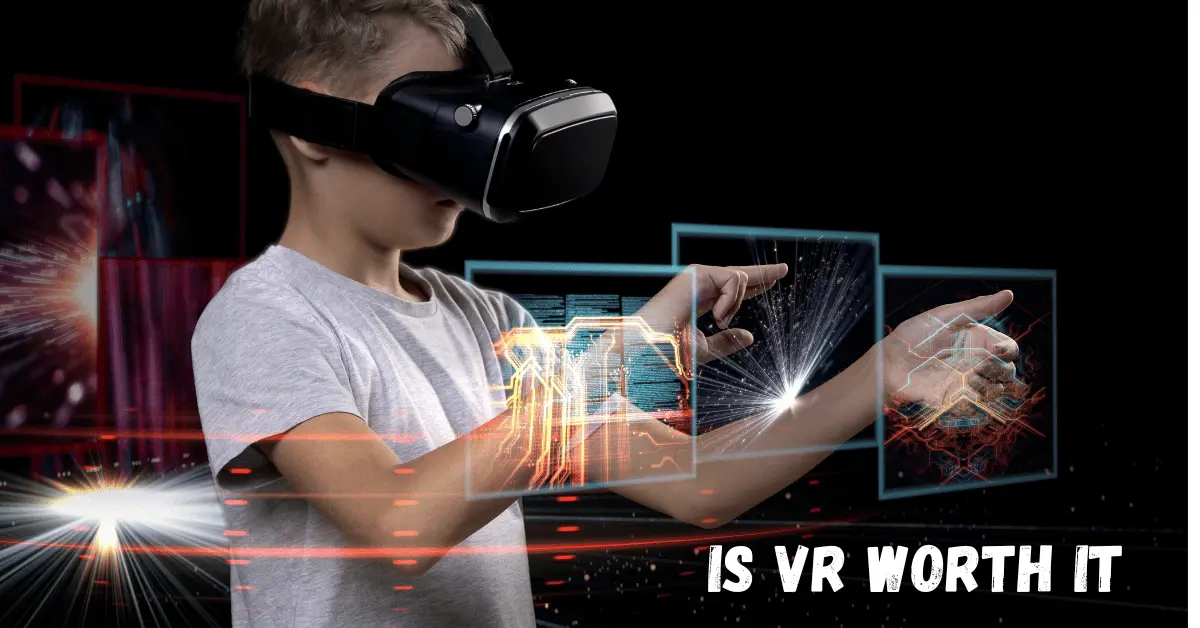Is VR Worth It? | Get a Perfect Solution [2025]
Published: 7 Apr 2025

Virtual reality, or VR, is like stepping into a whole new world without leaving your room. You put on a special headset, and suddenly, you’re inside a video game, exploring space, or even walking with dinosaurs. It sounds cool, right? But is VR really worth it? Let’s take a closer look.
What Can VR Do?
VR lets you experience amazing adventures without being there in real life. For example:
- You can travel to faraway places and learn about history.
- Play exciting games where you feel like you’re part of the action.
- Learn new skills like cooking, painting, or even flying a plane.
- Meet and talk to friends in virtual worlds, even if they’re far away.
It’s like having a magic door to endless possibilities!
What Are the Downsides?
While VR sounds fun, it’s not perfect. Here’s why:
- It can be expensive. A good VR headset can cost a lot of money.
- Using VR for a long time might make your eyes tired or even give you motion sickness.
- You need a lot of space to move around safely while wearing the headset.
- Not all games or experiences are available on VR yet, so you might run out of things to do.
Is It Worth It?
So, is a VR Headset worth it? It really depends on what you like and how much you’re willing to spend. If you love trying new technology, exploring new worlds, and playing games, VR might be worth it for you. But if you’re not sure, it’s okay to wait until it becomes more affordable and has even more options.
In the end, VR is like a fun new tool. It can open up many exciting possibilities, but it’s not something everyone needs. If you get the chance to try it, you’ll see how amazing it feels to step into a virtual world! Just remember to enjoy it safely and take breaks.
FAQs
No, VR is versatile—it’s used for education, training, fitness, and social experiences beyond gaming.
Yes, it can improve hand-eye coordination, provide relaxing environments, and even support physical exercise routines.
VR offers immersive experiences but lacks the emotional depth and sensory richness of real-life interactions.
VR enhances learning by making topics interactive and engaging, but it may not replace traditional methods entirely.
Yes, but progress depends on consumer demand, funding, and overcoming technical limitations like battery life.
VR can be fun for kids but requires supervision to avoid overuse or exposure to inappropriate content.
Prices vary; high-end devices are costly, but budget-friendly options are available for casual users.
Prolonged VR use might limit face-to-face interaction, but VR also enables global connections in virtual spaces.
Absolutely! Many industries use VR for skill-building simulations, such as medical procedures or flight training.
It’s possible as technology improves and becomes more affordable, but widespread adoption will take time.

- Be Respectful
- Stay Relevant
- Stay Positive
- True Feedback
- Encourage Discussion
- Avoid Spamming
- No Fake News
- Don't Copy-Paste
- No Personal Attacks

- Be Respectful
- Stay Relevant
- Stay Positive
- True Feedback
- Encourage Discussion
- Avoid Spamming
- No Fake News
- Don't Copy-Paste
- No Personal Attacks
![6 Types Of Virtual Reality | Perfect VR Information [2025] - Post Thumbnail](https://techpuk.com/wp-content/uploads/vr-types-100x52.webp)




